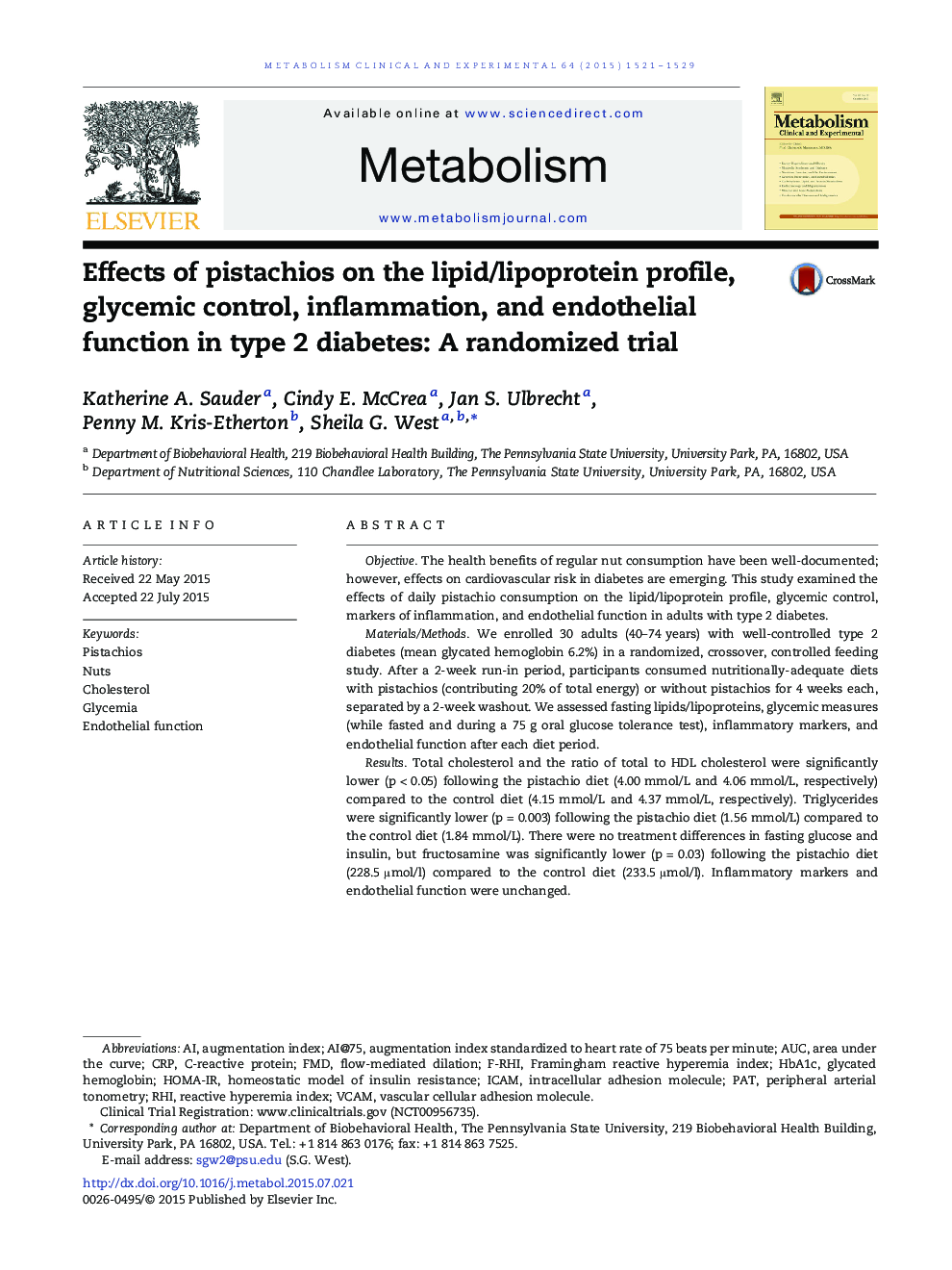| Article ID | Journal | Published Year | Pages | File Type |
|---|---|---|---|---|
| 2805378 | Metabolism | 2015 | 9 Pages |
ObjectiveThe health benefits of regular nut consumption have been well-documented; however, effects on cardiovascular risk in diabetes are emerging. This study examined the effects of daily pistachio consumption on the lipid/lipoprotein profile, glycemic control, markers of inflammation, and endothelial function in adults with type 2 diabetes.Materials/MethodsWe enrolled 30 adults (40–74 years) with well-controlled type 2 diabetes (mean glycated hemoglobin 6.2%) in a randomized, crossover, controlled feeding study. After a 2-week run-in period, participants consumed nutritionally-adequate diets with pistachios (contributing 20% of total energy) or without pistachios for 4 weeks each, separated by a 2-week washout. We assessed fasting lipids/lipoproteins, glycemic measures (while fasted and during a 75 g oral glucose tolerance test), inflammatory markers, and endothelial function after each diet period.ResultsTotal cholesterol and the ratio of total to HDL cholesterol were significantly lower (p < 0.05) following the pistachio diet (4.00 mmol/L and 4.06 mmol/L, respectively) compared to the control diet (4.15 mmol/L and 4.37 mmol/L, respectively). Triglycerides were significantly lower (p = 0.003) following the pistachio diet (1.56 mmol/L) compared to the control diet (1.84 mmol/L). There were no treatment differences in fasting glucose and insulin, but fructosamine was significantly lower (p = 0.03) following the pistachio diet (228.5 μmol/l) compared to the control diet (233.5 μmol/l). Inflammatory markers and endothelial function were unchanged.ConclusionDaily pistachio consumption can improve some cardiometabolic risk factors in adults with well-controlled type 2 diabetes. Our findings support recommendations that individuals with diabetes follow healthy dietary patterns that include nuts.
